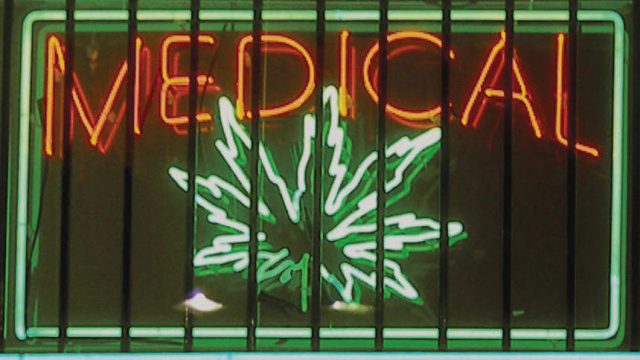The Wrong Marijuana Measure Made North Dakota’s November Ballot

This week we got news that one measure related to legalizing marijuana for medicinal use (kind of, more on that in a moment) will be on the November ballot this fall.
Another measure, which would have legalized marijuana for pretty much any use, failed to get enough signatures to make the November ballot. Though the hope is not over for that measure, despite what’s been widely reported. Petitioners still have time – until March 9 of 2017 according to the Secretary of State’s office – to make the next June ballot.
But for now, in 2016, we’re going to debate the medical marijuana measure. And it’s really, really bad law.
I say that not as someone who opposes easing restrictions on marijuana. I signed, and would have voted for, the measure to legalize recreational use. Our laws prohibiting marijuana use have reached a point of absurdity. By way of illustration, consider this recent quote from Fargo Deputy Police Chief Joe Anderson, commenting about a local investigation into a photo of a man forcing a bird to breathe in marijuana smoke:
“(A photo of) someone smoking marijuana, probably not a lot of attention, but when you bring in the component of cruelty to animals, that grabs a little bit more attention,” Anderson told the Fargo Forum.
Just so we’re clear, what prompted the investigation according to Deputy Chief Anderson wasn’t the man smoking illegal drugs but the bird inhaling the second hand smoke from the illegal drugs.
When even cops are ambivalent about marijuana use, I think it’s fair to say that the time has come to end the prohibition.
[mks_pullquote align=”right” width=”300″ size=”24″ bg_color=”#ffffff” txt_color=”#000000″]When even cops are ambivalent about marijuana use, I think it’s fair to say that the time has come to end the prohibition.[/mks_pullquote]
So why, then, don’t I support the medical marijuana measure? Because it’s terrible public policy.
You can read all 38 pages of dense legislation which makes up this measure below. Allow me to illuminate the arduous legal gymnastics people wanting to use medical marijuana will have to go through.
If it passes, only people who have one of a dozen “debilitating medical conditions” listed specifically in the law can obtain marijuana. Your malady not listed? You’re out of luck. That list of conditions for which marijuana can lawfully be prescribed by physicians isn’t up to, you know, physicians but rather government bureaucrats.
Those who do have the right sort of illness will pay a fee to obtain an identification card from the Department of Health which, among other things, requires the endorsement of a physician.
Obtaining marijuana would be both expensive, too. The measure provides for “compassionate care centers” which can only be operated as non-profits. Also, in order to enhance the hippie factor of the measure, these centers will also only be allowed to sell organic marijuana. “There are no pesticides authorized for use on marijuana; as such, a compassion center shall not apply pesticides in the cultivation of marijuana,” the measure states.
The centers cannot be located within 1,000 feet of a school. They must operate under bylaws submitted to the state for approval, and their books must be open to audit by the state. Even the security and video monitoring systems for the centers are dictated by the measure.
The centers would be limited to possessing no more than 1,000 marijuana plants, or 3,500 ounces of marijuana. That restriction on production will likely drive up prices.
Those who qualify to use medical marijuana are allowed cultivate it themselves, but only if they live more than 40 miles from a center and then only under more heavy-handed guidelines.
Those seeking out medicinal marijuana would probably find it easier to turn to the black market than pursuing it through legal channels. Which kind of defeats the whole purpose of the measure.
That seems to be what has happened in Minnesota.
In November the Associated Press reported that Minnesota’s costs through that state’s medicinal marijuana program are so high they’re deterring buyers. “Monthly costs that can quickly approach hundreds to thousands of dollars have prompted some patients to revert to buying marijuana on the black market,” the AP reported.
Legalizing marijuana for medical uses is a step in the right direction. Anything, frankly, which rolls back the wasteful and deadly law enforcement “war” on marijuana distribution and use would have great societal benefit.
But of little use is a policy so addled by bureaucracy it does very little to increase legal access and undermine illegal markets. That sort of policy is a waste of our time.
This is why legislating at the ballot box is a really, really bad idea.
[scribd id=318045368 key=key-rsWUJRTx1KixCvbKHkff mode=scroll]




